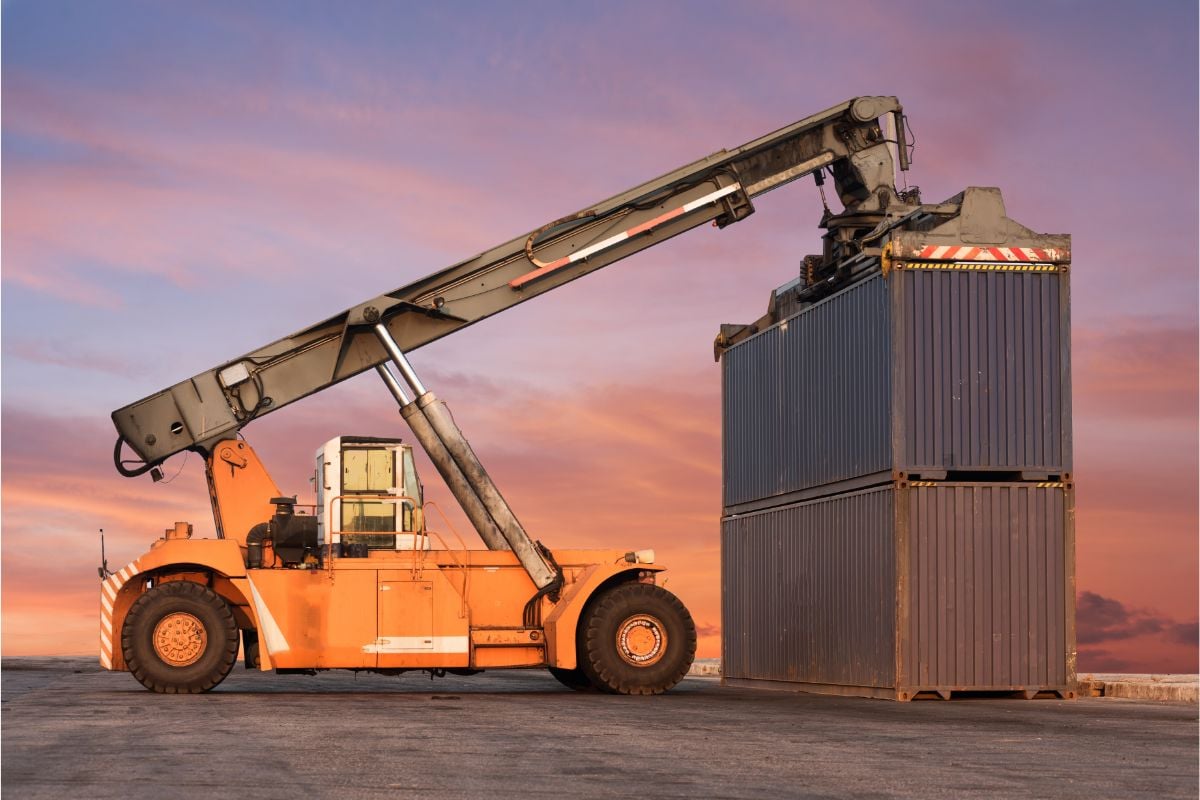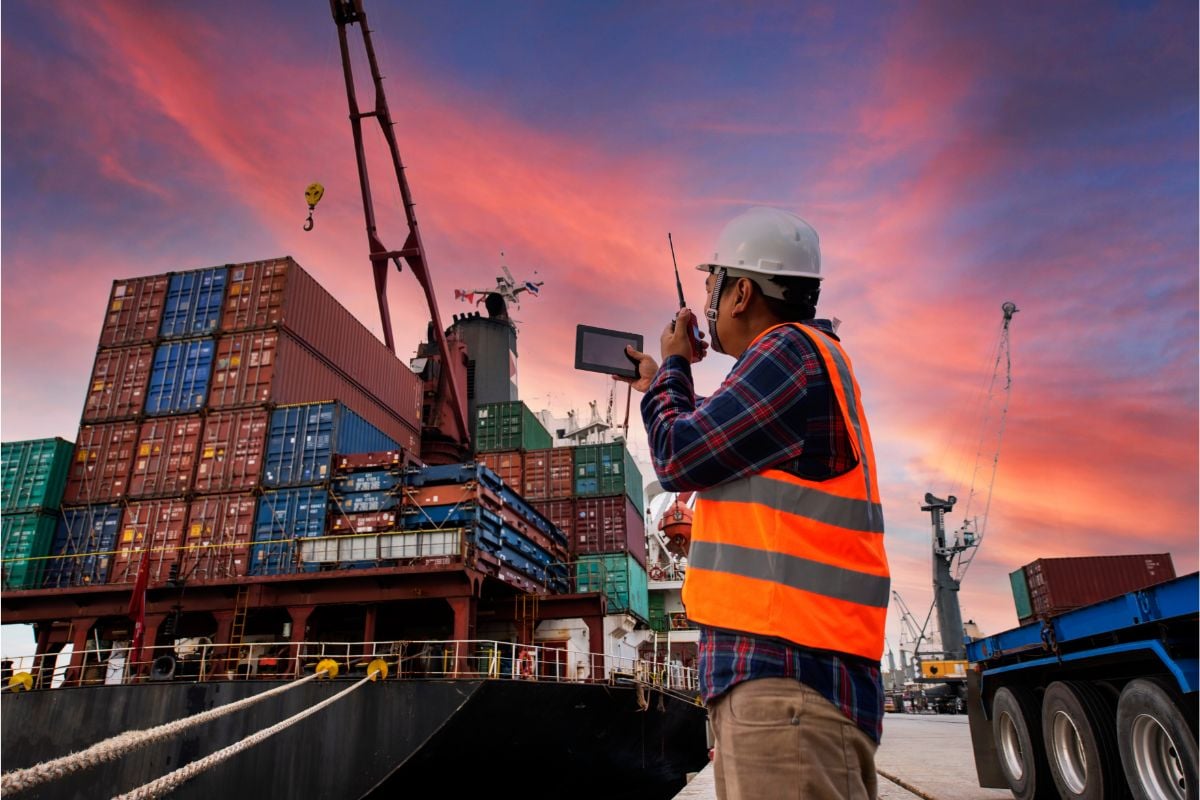USL&H Coverage: What you Need to Know
Employees in the United States require some form of workers’ compensation protection. The most common is the State Act Workers’ Compensation Insurance coverage. There are also specialized policies used to protect niche industries or job types. For industries based on or near navigable waterways, USL&H coverage is best.
USL&H coverage is a type of workers' compensation to protect companies accessing water. It falls under the United States Longshore and Harbor Workers' Compensation Act, overseen by the U.S. Department of Labor, and is unique to standard workers' compensation by protecting against incidents involving:
- Piers
- Railway crossing over water
- Unloading, loading, repairing, building, and testing water vessels
- Other tasks related to water and transport
The protection from these products is more direct and includes greater benefits and legal penalties than general workers' compensation claims.
USL&H coverage is specific to jobs surrounding water and water transportation. It protects in many ways, including:
Maritime Workers and the Longshore Act
The Maritime Workers and the Longshore Act is a federal protection law covering employees through medical, rehabilitation, and other forms of compensation for on-the-job injuries. This is specific to injuries on jobs in or around water.
Areas of Coverage Beyond Traditional Workers' Compensation
Traditional workers' compensation doesn't always fit the needs of maritime occupations. Some ways USL&H differs from general workers' comp are in terms of coverage against:
- Injury on navigable waters
- Injury while loading or unloading a vessel
- Injury at a ship repair facility
If an employee slips off the side of a dock and suffers an injury in the water, USL&H is there to protect your business from financial liability.
 Who Needs USL&H Coverage
Who Needs USL&H Coverage
Any employer with operations involving maritime work or work near water requires USL&H coverage. It protects employees, such as:
- Harbor construction contractors: Even businesses not primarily servicing maritime projects may take on jobs near water from time to time. A construction company working on a harbor construction project should implement USL&H coverage.
- Longshore and dock workers: Employees loading, unloading, or repairing watercraft are at risk of maritime injury. These jobs all fall under USL&H.
- Offshore energy employees: Wind or marine-based energy projects based offshore but near the water fall into this category. Protect employees with USL&H coverage.
- Ferry terminal staff: All staff involved in operating and maintaining a ferry or marine terminal should be protected by USL&H. This includes ticket takers, janitorial staff, and customer service in the terminal.
Check with your insurance provider if you're not sure your business falls into a category requiring USL&H coverage.
It's important to note that not all water is subject to the USL&H, as it only applies to navigable waterways, which the Department of Labor defines as the navigable waters of the United States or in the adjoining areas, including piers, docks, terminals, wharves, and those areas used in loading and unloading vessels. However, there are penalties for not providing Longshore coverage if it's required.
Any employer who fails to secure compensation for employees entitled to USL&H coverage will be guilty of a misdemeanor and liable for a penalty of $10,000, imprisonment of up to one year, or both.
Who Qualifies Under USL&H?
Workers who qualify under USL&H must satisfy two components, known as Situs and Status:
- Situs refers to the location of the work being performed. Legally, it must be "on or near" a navigable waterway in the United States.
- Status refers to the act of performing work that aids or supports maritime navigation and/or commerce in some way.
Interpreting these elements is rarely as straightforward as it seems, and there are many caveats to consider. If you have questions, the best course of action is to consult your insurance professional.
Exclusions and Limitations in USL&H Coverage
USL&H coverage doesn't cover everything involved in maritime-based jobs. There are some limitations to which maritime employees these policies cover.
Understanding What USL&H Doesn't Cover
Some of the limitations of USL&H protection include:
- Ship crew members: Employees around the boat are covered by USL&H. The seamen and crew are not protected. They have their own workers' compensation coverage through the Jones Act.
- Recreational watercraft jobs: Jobs on watercraft used for recreation are not usually covered by USL&H. The recreational vessels that are exempt are commercial watercraft.
- Part-time maritime work: If annual revenue is under $1,000, the employee doesn't qualify for USL&H.
- Retailers: Shops, restaurants, and other retail outlets located along the waterside are not included in USL&H coverage.
- Government employees: Official government employees have their own workers' compensation act.
- Marina employees: Workers not employed in construction, replacement, or expansion-related work.
It's important to know your business is included in USL&H so you can put appropriate measures in place for alternative workers' compensation.
Complementary Coverages for Full Protection
To cover the gaps by USL&H, there are alternative insurance products to use:
- Defense Base Act (DBA) Insurance: DBA insurance protects employees of the U.S. government, including the U.S. military.
- Jones Act Coverage: The Jones Act is designed to protect sailors, crewmates, boat captains, and other workers onboard water vessels that leave the shore.
- Traditional Workers' Compensation: Traditional workers' compensation protects a variety of non-marine-related work injuries, including slips and falls.
You may want to combine workers' compensation products if you have different levels of employment and different areas where employees work.
 When is USL&H Coverage Vital
When is USL&H Coverage Vital
The environment and tasks involved in maritime employment are unique. Safety measures continue to evolve, but protection against inherent risks is still essential. USL&H offers a safety net for businesses. Some moments when USL&H coverage might be vital include:
- Injury on a dockside crane: If a mechanical failure occurs at a busy port while a crane operator is moving a heavy container from the dock to the ship, it could result in injured workers. Should the jerking motion of the crane arm throw the operator from the machine, USL&H coverage is needed to recover costs for medical and rehabilitation expenses.
- Accident during shipbuilding: Even an experienced welder can be injured on the job. If a welder is working on the hull of a new cargo ship and miscommunication leads to a coworker turning on nearby machinery, causing a spark, the spark could ignite a fire. Both employees could suffer burns and require medical treatment and ongoing therapy. They may even be rendered disabled. USL&H helps with the costs of these treatments and offers support for short- and long-term disability due to injury on the job.
- Longshoreman's injury on a vessel: If, while loading a vessel, a longshoreman is hit with a heavy crate due to a harness snapping, that longshoreman may break a limb. Long-term bed rest and recovery may leave the longshoreman unable to work. USL&H helps recuperate some of the lost salary in this situation.
These and other situations render USL&H vital to any employee near the water.
Placing USL&H Insurance with Novatae
Novatae is a wholesale insurance company specializing in coverage on unique, hard-to-cover risks. Novatae works with maritime businesses, ensuring USL&H coverage protects where general workers' compensation doesn't.
Novatae offers advice on niche workspaces and workers' compensation products suitable to your needs.
Working with a Novatae agent, businesses can craft their ideal marine insurance coverage based on identifiable risks in their business models.
This article is not intended to be exhaustive, nor should any discussion or opinions be construed as legal advice. Readers should contact legal counsel or an insurance professional for appropriate advice.
About the Author
Insights
- What is an Umbrella Insurance Policy?
- What is Animal Mortality Insurance?
- MFA: The Cyber Version of a "Highly Protected Risk"
- Convenience Store Insurance Programs: What You Need to Know
- Home Health Liability Insurance: What You Should Know
- Commercial Builders' Insurance: Comprehensive Protection for Construction Professionals
- Understanding the Role of Additional Insureds in Commercial Insurance
- Convenience Store & Gas Station Insurance Coverage Explained
- The Convergence of Cybersecurity and Cyber Insurance
- It’s Easy to Become a Criminal Hacker!
- Medical Spa Insurance: What Insurance Retailers Need to Know
- Contractors Professional Liability Insurance
- Action Over Coverage and Exclusions



.png)
.png)